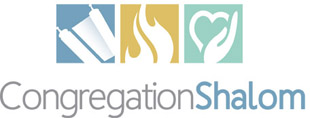As a Jewish Community We Have Choices to Make
Keeping Connected В March 2019
Dear Friends,
Years ago, when I was in seminary, Rabbi Alexander Schindler (z”l), the then president of the Reform Movement, courageously and passionately spoke about the need to throw open the doors of our synagogues to all those who were interested in being involved with Jewish life. He coined the term “Outreach” and in those early days, the Reform movement’s efforts were directed in particular to interfaith families and those individuals who were interested in learning more about Jewish life and conversion. During those early years of Outreach, people who converted were referred to as Jewish-By-Choice.
As the years progressed and engagement with Jewish institutions and Jewish practice began to become more tenuous, Jewish sociologists and clergy began to say “We are all Jews by choice.” With this understanding, the Reform movement’s outreach efforts have been greatly expanded and together we have tried to open our “Tent” even wider; proactively welcoming all those who might feel excluded from the joys and support of Jewish community.
As a movement, we worked hard to open the doors of American immigration in order to welcome Jews who wanted to come from oppressive societies like the former Soviet Union.В The URJ printed prayer books in Russian and set-up educational programs to help these emigres learn about Jewish life. As a movement, we realized we needed to adapt our programs and facilities so that people who had disabilities would have the access they needed to participate actively in Jewish life. We have more work to do in this regard.В As a movement, we actively worked to break down the barriers that excluded members of the LGBTQ community; setting up boundaries that prevented them from feeling welcome in our congregations. In this area too, we have more work to do.В As a movement, we are just beginning to understand that we need to do more to help Jews of Color feel welcome within in our congregations and to understand that all of us have biases that we bring to the table.
As movement, we need to do more to help people who want to participate in Jewish life, but feel excluded because of economic barriers. Towards those ends, our own congregation is taking the important step of moving towards a voluntary dues system. As you know, members of our congregation are working diligently to make this transition in a way that will ensure the long-term health of our congregation, while at the same time helping more members of the broader community feel that they can participate in synagogue life and in particular at Congregation Shalom. As a movement, we understand that we need to do more to help younger Jews in their 20s and 30s feel like synagogue life and community participation is relevant, meaningful, joyous and possible! As a movement…. We have so much more we need to do.
The URJ’s research shows that, “approximately 10% of the North American Jewish community identify as LGBTQIA+ Jews, a fifth of the Jewish population is racially and ethnically diverse, and more than 70% of non-Orthodox Jews who married after 2000 were in interfaith marriages, and these numbers are only growing. We know that Jewish communities are enriched when all people are equipped not only to participate, but to lead.” In truth, living a Jewish life, at this point in history, is purely optional. All of us are “Jews by Choice” and every family who walks through a synagogue door is taking the proactive step of saying that in some small or large way, being Jewish or having a Jewish family matters to them.
As we enter the month of Adar, we think about the story of Purim. In Megillat Esther, we learn how Esther could have easily assimilated into Persian society. Faced with the threat of death and anti-Semitism, she chose to stand up and speak out and say, “I am a Jew.” As you know, today Jewish life faces many, many challenges as well. The rise in anti-Semitism is scarily on the rise. The rates of assimilation are troubling. Engagement and support of Jewish institutions is on the decline. In short, in so many ways, the Jewish community is at a real turning point. I choose to see these challenges as opportunities. These are the questions we need to address. What can we proactively do in order to renew Judaism and to find meaningful ways to welcome all those who want to participate? How can we proactively work against the rise of external forces of hate; trying to ensure the rights for Jews, as well as for all those who are impacted by the rise of hate? What can we proactively do to strengthen the communities that make Jewish life possible?
For our synagogue, it is our responsibility, as well as our opportunity, to reflect on what we can do to help people feel welcome. What can we do, to ensure that involvement with our congregation and with Jewish life in general, is meaningful and an enriching aspect of our members’ lives? Please join us in whatever way you can, as we create and vision for the future. We want to hear your ideas and we want to help you find ways to choose Jewish life! Each of you matters and each of you can participate in building a stronger Jewish future.
L’shalom,
Rabbi Shoshana M. Perry
